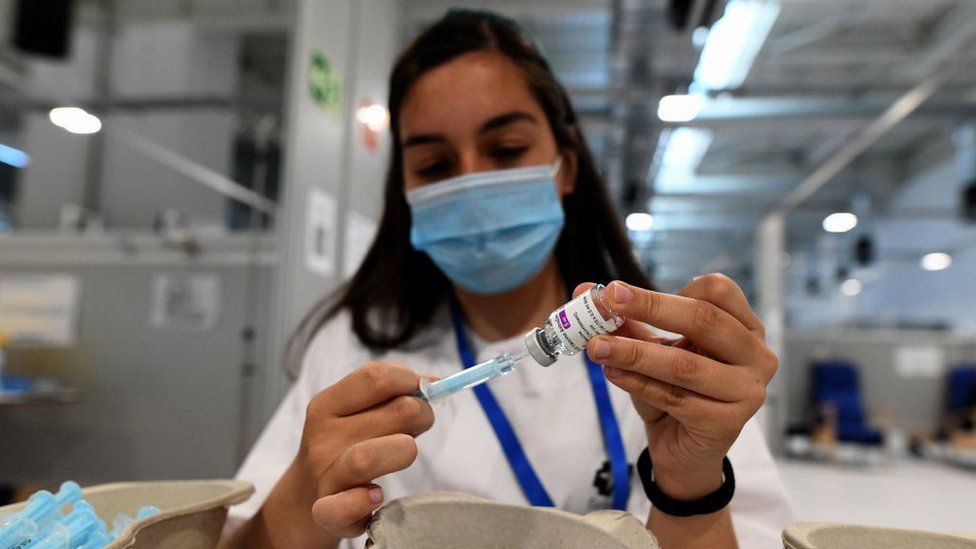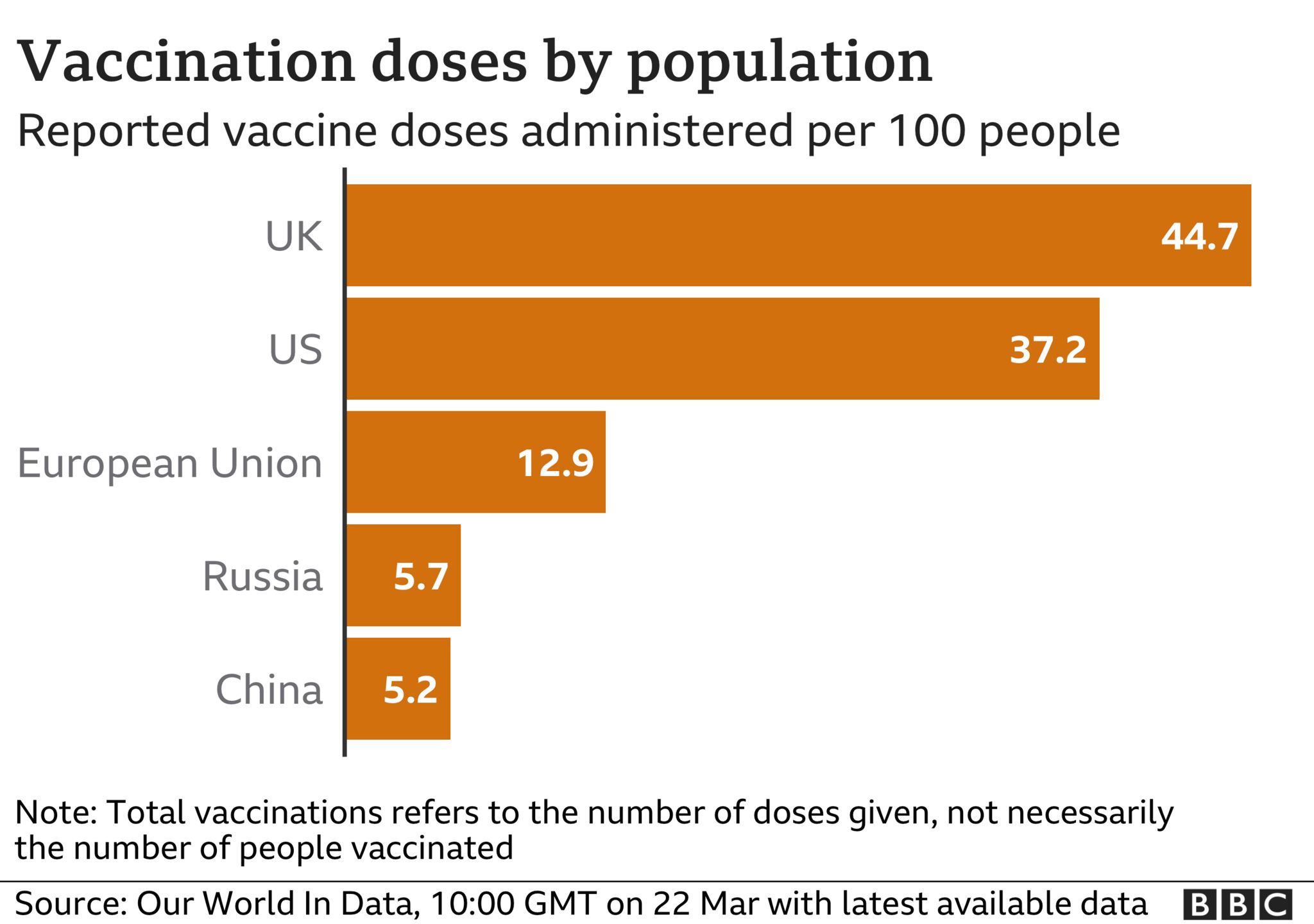Covid-19: Merkel defends rollout as vaccine pressure grows
 image copyrightGetty Images
image copyrightGetty ImagesGerman Chancellor Angela Merkel has defended the EU's decision to procure coronavirus vaccines jointly as the bloc struggles with delays in rollout.
EU leaders are to hold virtual talks shortly to discuss ways of boosting vaccine supplies and improving distribution across the 27 nations.
Pressure is mounting upon them to deliver after other countries, like the UK, achieved much faster vaccination.
The European Commission is seeking added controls on vaccine exports.
Such controls could affect supply to the UK, where Prime Minister Boris Johnson has warned against imposing "blockades".
The virtual summit comes as a third wave of coronavirus infections sweeps across much of mainland Europe.
EU states have seen some of the deadliest outbreaks of the pandemic, with Italy recording more than 106,000 deaths, France 93,000, Germany 75,000 and Spain 73,000.
Yet recent figures show just 12.9 doses of vaccine have been administered per 100 people in the EU compared with 44.7 in the UK and 37.2 in the US.
The European Commission has blamed pharmaceutical companies - primarily AstraZeneca - for not delivering the promised doses to the EU.
A site in Belgium produces the Oxford-AstraZeneca vaccine, and another in the Netherlands is expected to increase supplies of the jab in the EU.
Brussels has said that of the more than 40 million doses exported from the EU over the past two months, a quarter were sent to the UK.
The UK and the EU said on Wednesday they wanted to "create a win-win situation and expand vaccine supply for all".
What did Merkel say?
Speaking to German MPs, the German chancellor said that if some members had had vaccine supplies and other had not, it would have shaken the EU's internal market to its core.
But some EU states, led by Austria, are calling for a revision in the distribution method after failing to obtain enough doses earlier this year.
"We are in a situation where some member states will have vaccinated their population by the beginning or middle of May while for others, it will take six, eight or ten weeks longer," Austrian Chancellor Sebastian Kurz said last week. "We believe that's a problem."
Mrs Merkel warned that the impact of the pandemic could go beyond the current year.
"We have to assume that the virus, with its mutations, may be occupying us for a long time to come so the question goes far beyond this year," she said.
The EU, she said, relied on what vaccines it could make locally because "British production sites are manufacturing for Britain and the United States is not exporting".
At the same time, more had to be done to ensure the rest of the world was supplied with vaccines, since otherwise new mutations would keep emerging, Mrs Merkel said.


EU leaders had planned to meet face to face in Brussels but a third wave of the pandemic is sweeping across much of mainland Europe. So, a summit by video-conference was deemed safer.
EU politicians are under increasing public pressure. Many voters blame their governments and Brussels for a vaccine rollout that lags far behind the UK.
The European Commission blames pharmaceutical companies - primarily AstraZeneca - for not delivering jabs promised to the EU.
But leaders are divided over proposals for new restrictions on vaccine exports out of the bloc to boost domestic supply. Some fear that would disrupt global supply chains needed to manufacture vaccines and damage already strained relations with the UK after Brexit.

While there have been suggestions that the proposals being put before EU leaders on Thursday will be focused on the UK and US in particular, EU Health Commissioner Stella Kyriakides said that this was not the case. "We're dealing with a pandemic and this is not seeking to punish any countries," he said.


What is the EU planning?
The tougher export controls are most likely to affect vaccine-exporting countries that have higher vaccination rates than the EU, such as the UK and US.
The key criteria for the proposed regulations are "reciprocity" and "proportionality":
- The EU says there is no reciprocity if a country importing vaccines from the EU restricts exports itself - so it may review exports to this country
- Member states and the Commission will also consider the state of the pandemic in that country, its vaccination rate and vaccine supplies
There will be no outright export bans, which are opposed by countries such as the Netherlands and Belgium.
Vaccine manufacturers would be assessed to see if they were fulfilling their contract with the EU, although no specific algorithm is planned.
In an interview with the BBC, the EU's Internal Market Commissioner Thierry Breton insisted the bloc's issues were with AstraZeneca and not the UK government. "I know that there's some tension... but as long as we have transparency, I think [relations] will be able to be normalised," he said.
But he said that if AstraZeneca had provided the agreed 120 million doses to the EU, member states would have been at the same rate of vaccination as the UK: "We have been heavily penalised and we just want to understand why."
AstraZeneca denies that it is failing to honour its contract with the EU.



No comments